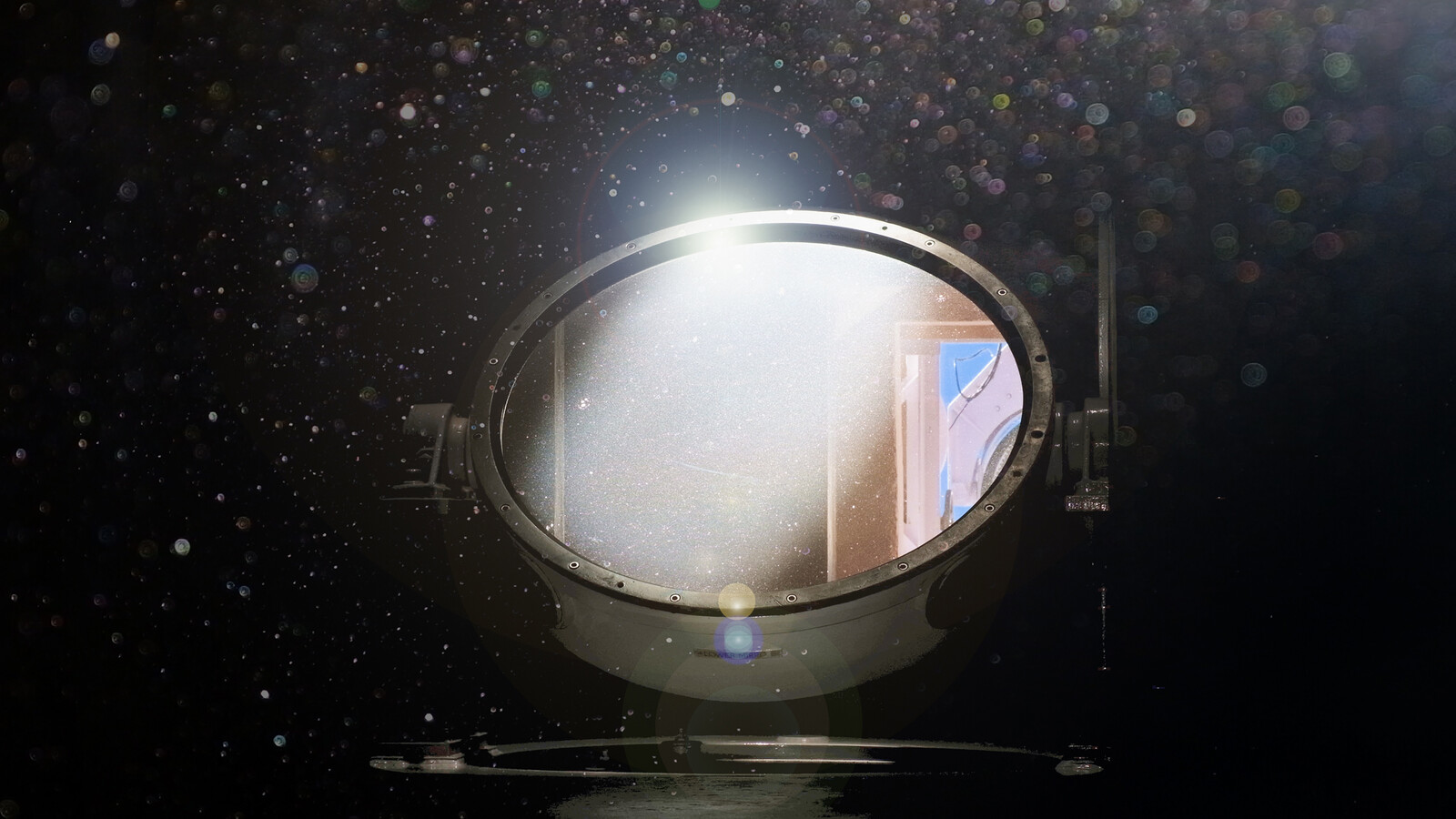Borrowed Light
Deutsche Bank “Artist of the Year” 2024
September 12, 2024–March 10, 2025
Deutsche Bank recognizes Rohini Devasher as the “Artist of the Year” for 2024. Born in 1978, the Indian artist studied painting and graphic art and currently resides in Delhi. In her intricate artistic endeavors, she delves into the intersections of science, art, and philosophy. For the inaugural occasion, Stephanie Rosenthal, an esteemed art expert and Director of the Guggenheim Abu Dhabi Project, suggested three artists, among whom Rohini Devasher was chosen by the bank.
Since 2010, Deutsche Bank has been honoring artists every year, offering a platform for new positions in contemporary art. The “Artist of the Year” award focuses on promising artists who have already produced artistically and socially significant works that align with the two focal points of the Deutsche Bank Collection: works on paper and photography.
Borrowed Light, Devasher’s first institutional solo exhibition in Europe, highlights her longstanding engagement with astronomy, where light plays a pivotal role. For Devasher, the key to exploring new cosmologies between the human and the non-human lies in examining the interplay between place, observer, and observation.
Devasher has been an amateur astronomer as long as she has been an artist. Working closely with both amateur and professional astronomers to explore the narratives, conversations, and stories of those whose lives have been transformed by the night sky, she investigates the remote and often unusual locations where these individuals gather and the forms and modes of interaction that arise from their observations. These have included research spaces, eclipse chases, and observatories across India such as the Indian Astronomical Observatory (IAO) Hanle, Gauribidanur Radio Observatory, Giant Meter Wave Radio Telescope Array (GMRT), National Centre for Radio Astronomy (NCRA), and the Kodaikanal Solar Observatory (KSO), among others.
These spaces and the scientists she has worked with are a conduit to the most fundamental questions we ask as a species. What is the nature of the universe? How do we map its resolution? Where does our attention focus? How do we describe, collect, sort, map, and measure what we see? How does our history and worldview shape our interpretation of data and perception of things? Devasher is passionate about the tools and technology that allow for these observations, and these deeply inspire her work.
The observation of natural phenomena has been a cornerstone of Indian history and culture for thousands of years, particularly in the field of astronomy. The science of the stars was esteemed not only for its precise measurements, data, tables, and calculations, but also for the sensual and spiritual experience of the cosmos.
The centerpiece of this exhibition, One Hundred Thousand Suns, focuses on the historic Kodaikanal Solar Observatory in South India, where every day, weather permitting, since 1904, the staff at the observatory have recorded images of our Sun. The trajectory of the Sun’s observations is navigated to explore the complexities of observational astronomy, and the ways in which “seeing” is strange, wondrous, and more ambiguous than one might imagine.
The exhibition title, Borrowed Light, is an architectural term used for reflected light, or light “borrowed” from an adjoining space to light an otherwise dark room or passage. For Devasher, Borrowed Light is a meditation on impermanence, light, and time, a reminder that our connection to the planet’s skies and what lies beyond demonstrates that it is possible to envision a future of planetary living based on solidarity and empathy.
The exhibition Borrowed Light is curated by Britta Faerber, Global Head of Deutsche Bank Art+Culture, and on view at PalaisPopulaire in Berlin from September 12, 2024 to March 10, 2025. Open House September 11, 2024 from 6–9pm.
An artist talk will take place on September 15, 4pm at PalaisPopulaire in Berlin. Devasher speaks with Stephanie Rosenthal, Director of the Guggenheim Abu Dhabi Project, and Professor Lorraine Daston, Director emerita, Max Planck Institute for the History of Science, about her multi-layered artistic work and her fascination with combining science, art and philosophy.





